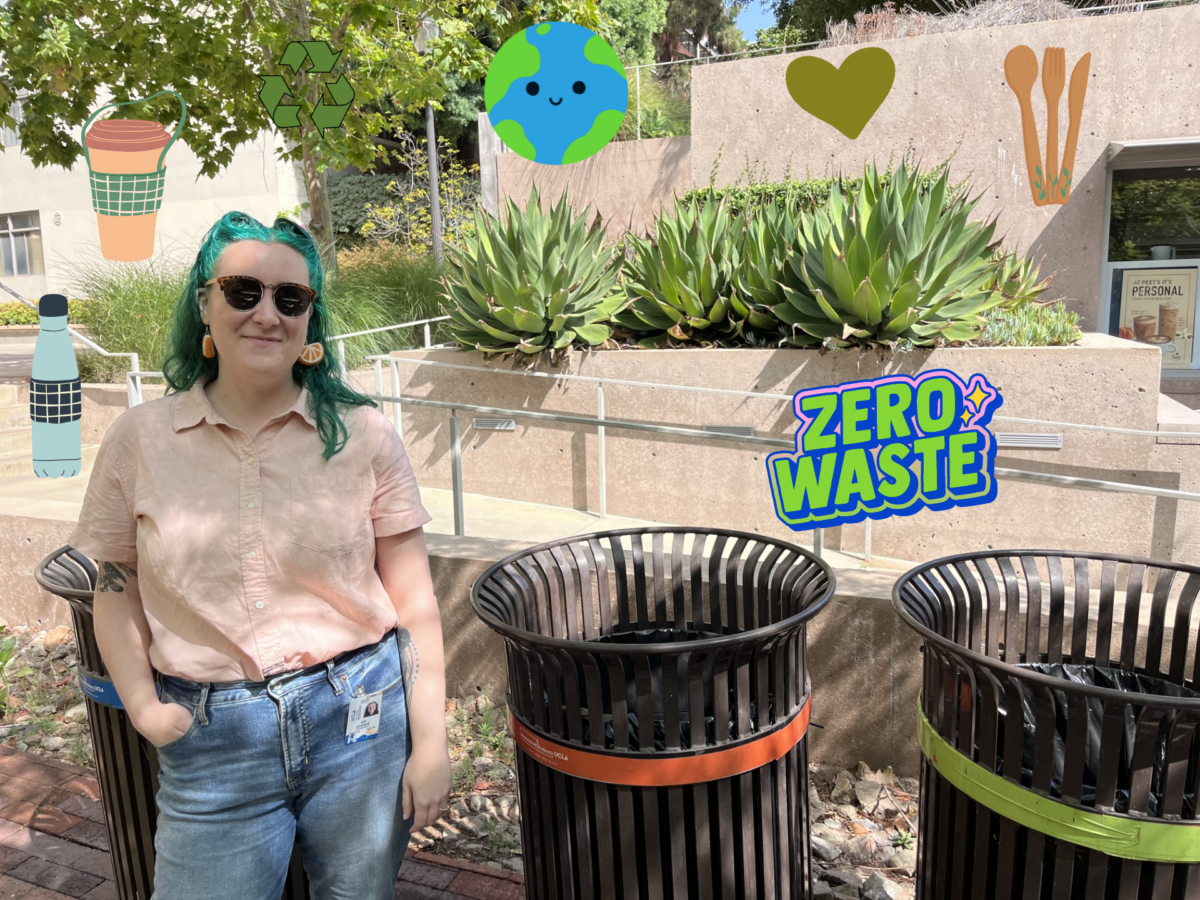By Karen Hallisey
Sustainability doesn’t have to be messy — even when you are talking trash. Inching closer to the start of the academic year, when the campus population peaks and the litter piles up, is a good time to reintroduce the goal to divert 90% of the university’s waste from landfills and welcome someone new to oversee this initiative.
Zero waste at UCLA focuses on reducing, reusing, recycling, and composting. Directing this diversion is Jade Goegebuer, the program’s new manager. In this role, Jade, a recycling and resource management expert, leads waste management efforts, engages Bruins to throw away as little as possible, and furthers the phase out of single-use plastics on campus.
Jade has always favored broad green strokes. An avid painter with artistic credentials and gardener who frequents national parks, she breaks down how waste minimization on campus works.
Centralized bins have three streams: recycle (hard plastics, clean paper, glass, and metals); compost (food and liquids, soiled paper products); and landfill (snack wrappers, plastic utensils and straws, and Styrofoam).
Jade explains the big thing is to sort trash correctly so that items get to the waste hauler uncontaminated. For example, recyclables with food on them that should go in the composting stream.
Breaking free from plastic is also a big deal. UCLA’s single-use policy is about transitioning away from plastic bags in retail and dining locations, replacing single-use plastic food service items with only reusable or locally compostable alternatives, and switching to aluminum, glass, or paper water and beverage bottles.
“Our plastic reduction goal is one of the strictest in the UC system,” said Jade.
What difference does zero waste make? A heaping load!
A backpack full of trash — 2 pounds precisely, is generated every second at UCLA. That’s more than a million pounds of waste each year.
The breakdown of materials in landfills releases methane, a greenhouse gas that traps more heat in the atmosphere than carbon dioxide. Sending less waste to landfills can lead to a significant reduction in these harmful emissions.
As for encouraging Bruins to get on board with zero waste, Jade emphasizes being mindful.
“If you know you come to campus every Monday to stay and study, use a reusable cup. Right now, there’s a dine-in mug program at Kerckhoff Coffee House,” said Jade.
And there’s conscious consumption: Do you need to buy something, and does it have to be brand new, or can you borrow it from someone? UCLA has a Surplus Stop with new-to-you items like furniture, electronics, school and office supplies, home goods, and more available.
Finally, she suggests talking to your friends, family, and fellow Bruins!
“It’s often noted that some people interested in sustainability are really engaged. But there are also people not aware of what can be done. Speak out and share what you know,” said Jade.
To learn more, visit the Zero Waste website and follow Zero Waste UCLA on Instagram.
